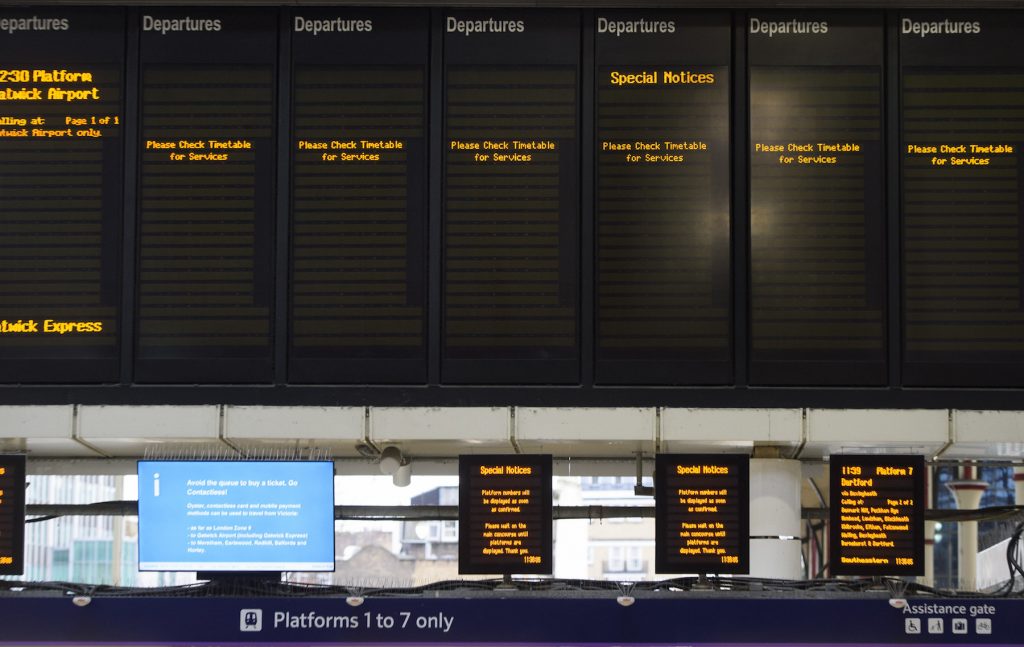A new report out today says the rail franchises running trains in the UK are just not working... which isn't really news for those of us who've suffered through delays and cancellations all year round, but might just spur some change in the way the whole thing is run.
What it means: A group of MPs called the Public Accounts Committee did some research, and basically concluded that getting private companies to operate the train system was a bad idea. Virgin Trains East Coast in particular ran out of money years before it was supposed to, and now needs a government bailout of several billion pounds. And what with the strikes by Southern Rail over the past year (read our interviews with Southern Rail drivers here) the Thameslink – Great Northern franchise doesn't seem to be doing much better.
The Department for Transport says the report is unfair – passenger numbers have doubled since privatisation, they say, which proves something's working. But campaigning groups argue passenger numbers aren't going up because trains are good, but because more jobs are moving to urban areas, so people have to take the train whether they like it or not.
The debate over public vs private rail is an ongoing one: it's all to do with who you think will run the system more efficiently, bringing down prices for customers, engaging with workers and keeping infrastructure in a good state.
The sector is what's called a 'natural monopoly' – it doesn't make sense to have lots of firms competing over railways because, well, you can't exactly have loads of different rail systems working alongside each other. Often, these types of industries are state-run, but some say private firms are just better at managing resources. This group of MPs doesn't seem to think that's happened in this case.


